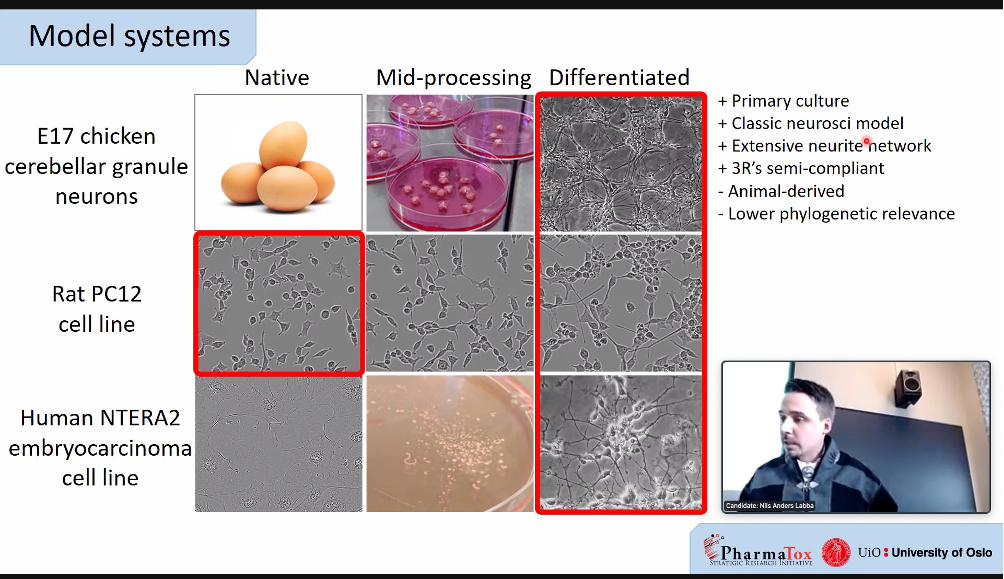

On February 4, 2022, PharmaTox PhD student Nils-Anders Labba from the Department of Pharmacy, Faculty of Mathematics and Natural Sciences, defended his doctoral thesis «In vitro models and methods for assessment of developmental neurotoxicity and neuroprotection».
Labba’s supervisors were Professor Ragnhild Elisabeth Heimtun Paulsen, Section for Pharmacology and Pharmaceutical Biosciences, Department of Pharmacy, University of Oslo, and Associate Professor Ragnhild Eskeland, Institute of Basic Medical Sciences, Faculty of Medicine, University of Oslo.
Main research findings
Developmental exposure to neurotoxic insult is thought to be a contributory factor in the increasing incidence of neurodevelopmental disorders. Xenobiotic-mediated neurodevelopmental toxication can be a prolonged, subtle process involving both intrinsic and extrinsic factors such as genetic predispositions and interactions between numerous xenobiotic influences. Due the structure of modern society, prevention of exposure is often impractical, with xenobiotics of both pharmaceutical and industrial origin having been identified air- and water-ways, sewage systems, and food webs. When prevention is not possible, protection against damage is the next best course of action. However, in order for protective strategies to succeed they must be targeted, necessitating insight into both toxic and protective mechanisms. As neurodevelopmental studies involving toxic insults cannot and should not be undertaken in pregnant subjects or infants, pre-clinical methodology must be employed. In this work we utilized a variety of in-vitro models and methods to investigate the potential toxic and protective effects of a small set of xenobiotics of pharmaceutical, industrial, and synthetic origin. We found that exposure to paracetamol and to a mixture of environmental pollutants reduces the survival and alters functionally important structural aspects of neurons and neuron-like cells of both animal and human origin.